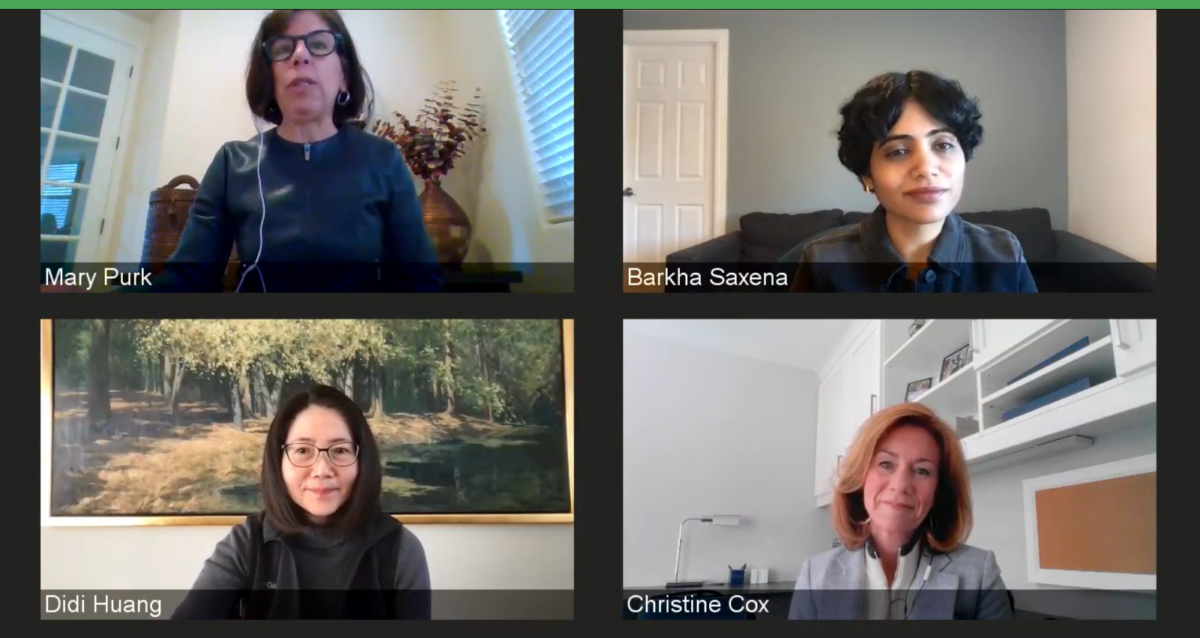Dream of being a data scientist?
A mid-level data scientist in Philadelphia can make between $72,254 and $110,388, while that jumps to between $104,975 and $136,429 for a more senior technologist, per a recent IT salary guide.
The data science job market is continues to grow — though perhaps more slowly than that of the hot data engineering market — and the skills needed for a role in the industry are still cited often as being in demand.
(What is a data scientist? At its core, it’s “someone who has the ability to take data and understand it, process it, extract value from it, visualize it, and communicate it,” as one once described for us.)
Broadly, skills related to data analytics can apply to a plethora of tech roles. That’s according to IKEA Digital VP of Data and Analytics Christine Cox, who has previously worked as Ricoh’s VP of marketing operations for digital transformation and Comcast’s VP of digital customer acquisition and strategic partnerships.
“Digital, data and analytics are threads that have gone [with me] through different careers,” she said during Women In Data Science Philadelphia @ Penn’s industry panel on Wednesday. “When you switch roles, you want to have comfort level of coming to the table with 50% solid experience and 50% of learning that industry.”
And if one career isn’t working, there are always opportunities to try something new that’s still within the field: Cox said taking risks has helped her thrive, especially when she decided to make a big change later in her career that she ended up loving.
“Fifteen years into my career, I decided I wanted to get into consulting and was thrown into a role when I was expected to bring in new clients, create a database and travel a lot,” she said.
Wharton Customer Analytics and AI For Business Executive Director Mary Purk moderated the discussion featuring Cox, Poshmark Chief Data Officer Barkha Saxena and Facebook Data Science Director Didi Huang.
Huang has focused her career on consistently learning as a method of meeting goals.
“I never thought about keeping up with latest research as a personal goal,” she said. “Instead, my goal is to have a positive impact in business — and therefore my learning is about the means to reach that end. When I started as an analyst at eBay in 2003, instead of relying about the tools, I found that if I could play with data directly, I could get to answers so much quicker.”
Much of the panel was dedicated to general advice for women looking to succeed in the field — and much of which could also be applied to any person looking to advance professionally. Here’s a snippet of what they said:
- Seek a mentor and find resources — Saxena has always been intentional about searching for mentors who can provide sincere feedback and expand her knowledge. “First and foremost, I need to connect with a person that is super honest,” she said. “I should be able to share weaknesses, fears and what I’m trying to do. Second is high [emotional intelligence] and IQ. You need to be able to have an enriching conversation with this person. I talk about personal and professional life.”
- Networking can help you go further — Cox was emphatic in discussing how conferences and professional events can allow professionals to expand their networks and later succeed. “This [conference] is a great opportunity to network with people you want to learn from,” she said. “It’s a great way to network. Even in COVID we’ve found way to continue these events.”
- Ask for what you want — Women frequently miss out on opportunities that go to men, and Saxena believes it start with women being empowered to advocate for themselves more. “Speak up,” she said. “We as women are generally not good at it. Always speak up your mind and ask for what you want. [Whatever] new challenge you are looking for, go for it and don’t hesitate.” (Hefty caveat here: This advice veers dangerously toward “Lean In” territory, and there’s a tech gender bias that can negate these best efforts.)
P.S. For a local resource to connect with other women in data careers, check out the Women in Data meetup. And if you’re looking for a new tech career yourself, check out Technical.ly’s NET/WORK job fair on March 18.
Michael Butler is a 2020-2022 corps member for Report for America, an initiative of The Groundtruth Project that pairs young journalists with local newsrooms. This position is supported by the Lenfest Institute for Journalism.
This editorial article is a part of Tech Career Paths Month of Technical.ly's editorial calendar.
Before you go...
Please consider supporting Technical.ly to keep our independent journalism strong. Unlike most business-focused media outlets, we don’t have a paywall. Instead, we count on your personal and organizational support.
Join our growing Slack community
Join 5,000 tech professionals and entrepreneurs in our community Slack today!

The person charged in the UnitedHealthcare CEO shooting had a ton of tech connections

From rejection to innovation: How I built a tool to beat AI hiring algorithms at their own game

How a laid-off AI enthusiast pivoted to become a founder — while holding down a day job


